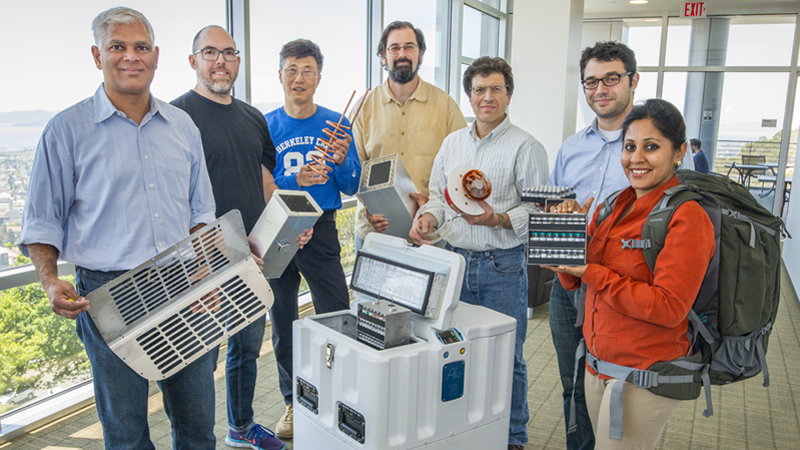
Vaccines are arguably one of the most important inventions of mankind. Unfortunately, vaccines must be produced and stored in an environment with strict temperature regulation — between 36 °F and 46 °F — to keep the vaccine bugs alive. So vaccine delivery is a major problem due to the absence of reliable refrigeration in many remote countries.
Approximately 30 million children worldwide — roughly one in five — do not receive immunizations, leaving them at significant risk of disease. As a result, 1.5 million children under the age of five die annually from vaccine-preventable diseases, such as pneumonia and diarrhea. Perhaps more surprising, almost half of the vaccines in developing countries are thrown away because they get too warm during delivery so they are no longer viable. Some administered vaccines are also ineffective because they froze during transport, but there is no easy way to test this.
Scientists at Lawrence Berkeley National Laboratory (LBNL) are trying to solve this vaccine delivery problem by developing a portable solar-powered fridge. Fabricated entirely at LBNL, their portable solar-powered vaccine fridge will be transported by bicycle or motorcycle in remote areas of the developing world. Zach Friedman and Reshma Singh are leading the project as part of the LBNL Institute for Globally Transformative Technologies, which seeks to bring scientific and technological breakthroughs to address global poverty and related social ills.
The team’s first prototype portable fridge uses a thermoelectric heat pump, rather than a traditional vapor compression heat pump that relies on a circulating liquid refrigerant to absorb and remove heat. The thermoelectric chips were initially developed to keep laptops cool, so laptops could be made thinner without fans. The technology was adapted for this global application to reduce the size and weight of the fridge.
Their portable units have a one to three-liter capacity, much smaller than standard solar fridges that are typically 50 liters or more. Once the fridge cools down to the right temperature (36 °F – 46 °F), it is designed to run within that temperature range for at least five days without any power, at an ambient outside temperature as hot as 110 °F.
